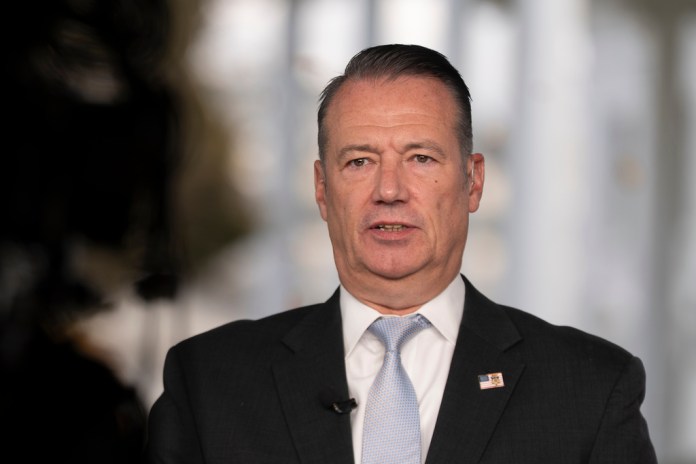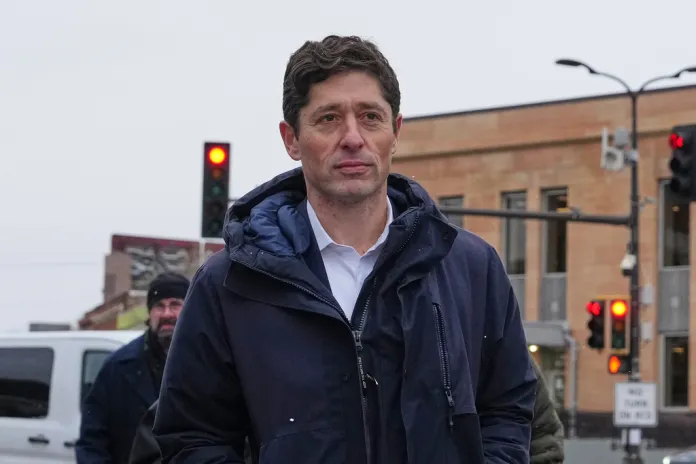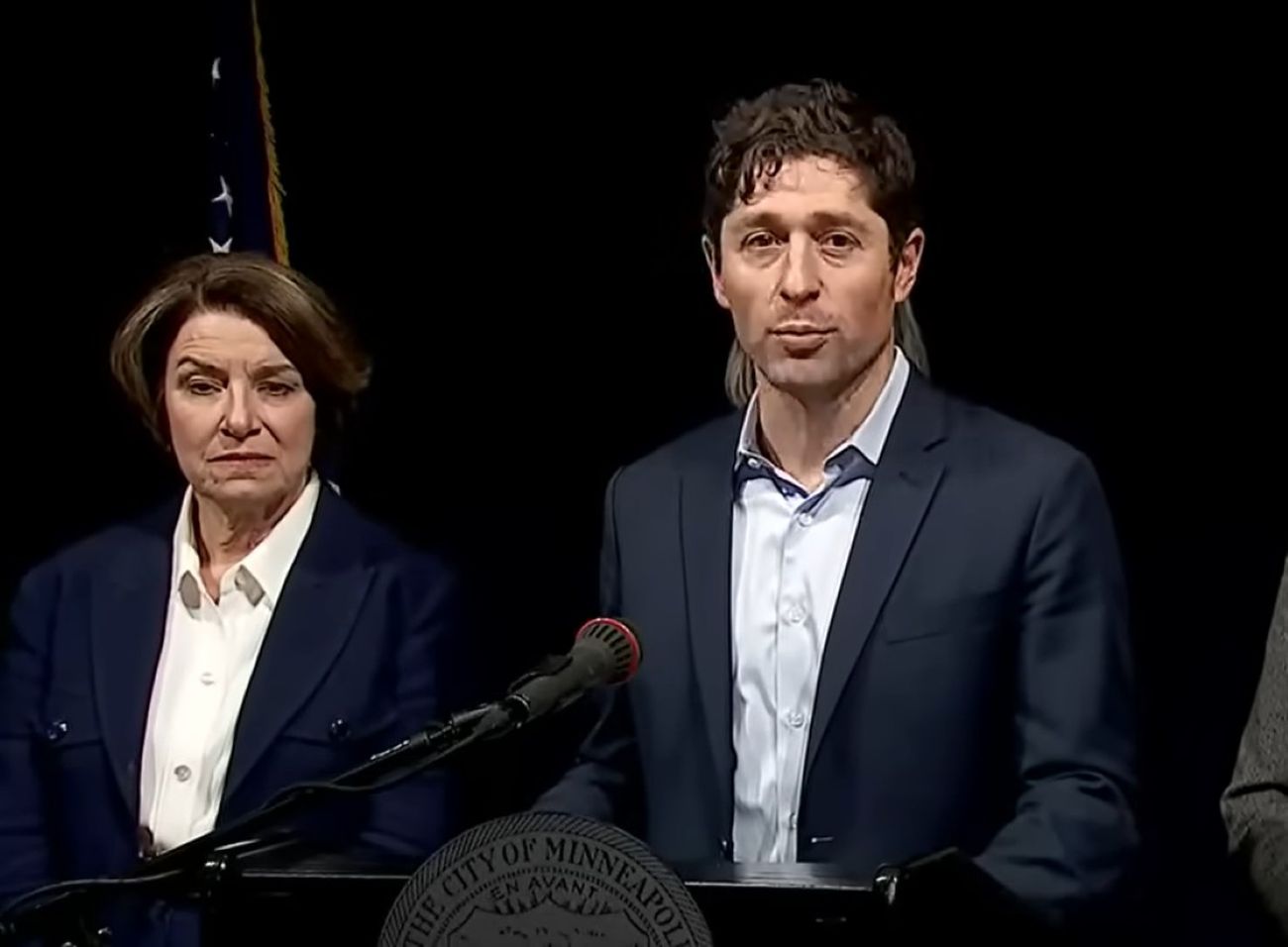Chicago, New York set up clash over where ICE can make arrests
The article discusses a growing legal conflict between some local governments, notably Cook County in Illinois and New York State, and the federal government over where Immigration and Customs Enforcement (ICE) can arrest illegal immigrants. The Trump administration reversed Biden-era policies to permit immigration arrests in and around courthouses, considering it safer for officers and the public since courthouse security screens visitors. However, jurisdictions like Cook County have issued orders prohibiting civil immigration arrests without a warrant inside and near local courthouses to protect litigants and witnesses from fear of arrest while attending court. Local authorities argue this maintains the long-standing common law privilege that courts remain accessible and free from disruption.
Federal officials and some legal experts contend that these local orders interfere with federal immigration enforcement and violate the Constitution’s Supremacy Clause,which gives federal law precedence over local laws. The Justice Department has sued New York over a similar law, claiming it obstructs federal law enforcement, while New York defends its position under the 10th Amendment and common law protections. The dispute highlights broader tensions between federal immigration enforcement priorities and local efforts to restrict ICE operations in sensitive public sites like courthouses.
Chicago and New York set up legal clash over where ICE can arrest illegal immigrants
The Trump administration has made courthouses a popular location to arrest illegal immigrants, but as more local governments work to block those arrests from happening, a legal showdown is brewing.
Cook County, Illinois, became the latest jurisdiction to block federal immigration officials from conducting arrests of illegal immigrants inside and in the vicinity of local courthouses. The Tuesday administrative order from the court bars civil arrests, without a warrant, of a party or witness to proceedings at the local courthouse, within and around any of the Cook County courthouses. The order joins similar orders in the state of New York and other Democratic jurisdictions that have attempted to curb arrests of illegal immigrants in courthouses.
“The fair administration of justice requires that courts remain open and accessible, and that litigants and witnesses may appear without fear of civil arrest,” the order said. “The common law has long recognized this privilege to ensure individuals can fulfill legal duties without risking further legal jeopardy. Courts in Illinois and nationwide have consistently reaffirmed its necessity.”
The Trump administration changed Biden-era policies earlier this year to allow immigration arrests at courthouses as part of its aggressive deportation agenda. A Department of Homeland Security spokesperson told the Washington Examiner the policy to arrest illegal immigrants at courthouses is safer for both officers and the public, in part because subjects have to go through security to enter a courthouse and are therefore known to be unarmed.
“We aren’t some medieval kingdom; there are no legal sanctuaries where you can hide and avoid the consequences for breaking the law. Nothing in the Constitution prohibits arresting a lawbreaker where you find them,” the spokesperson said in reaction to Cook County’s order.
“The ability of law enforcement to make arrests of criminal illegal aliens in courthouses is common sense. It conserves valuable law enforcement resources because they already know where a target will be. It is also safer for our officers and the community. These illegal aliens have gone through security and been screened to not have any weapons,” the DHS spokesperson continued.
The spokesperson also renewed the claim that Immigration and Customs Enforcement is targeting the “worst of the worst” of illegal immigrants with its operations.
Iowa Solicitor General Eric Wessan told the Washington Examiner he believes Cook County’s order is unconstitutionally interfering with federal immigration enforcement.
“The Cook County court system does not have a veto over Congress. Federal law authorizes immigration authorities to arrest individuals who are illegally in the country,” Wessan said. “By preventing federal agents from doing their jobs, Cook County is obstructing the enforcement of federal law [and] prioritizing protecting illegal aliens, many with violent criminal records, over the law.”
“That is not only misguided — it’s unconstitutional. Since McCulloch v. Maryland in 1819, the Supreme Court has made it clear that municipalities cannot interfere with federal law enforcement,” Wessan added.
The landmark 1819 case found that Maryland had unconstitutionally interfered with the federal government by trying to tax bank notes from the Bank of the United States, ruling that the federal government has various implied powers over the states not directly listed in the Constitution.
While the Trump administration has not yet pursued any legal action against Cook County over its new order for courthouses, the Justice Department did file a lawsuit earlier this year challenging a similar New York law. The Empire State law at the center of the lawsuit, titled the Protect Our Courts Act, also prevents federal immigration officials from arresting illegal immigrants in and around state courthouses.
The DOJ’s lawsuit alleges the law violates the Supremacy Clause of the Constitution, which holds that federal law is paramount to state or local law.
“These laws pose intolerable obstacles to federal immigration enforcement and directly regulate and discriminate against the Federal Government, in contravention of the Supremacy Clause of the United States Constitution,” the lawsuit alleged.
“Through these enactments, New York obstructs federal law enforcement and facilitates the evasion of federal law by dangerous criminals, notwithstanding federal agents’ statutory mandate to detain and remove illegal aliens,” the lawsuit continued.
While the DOJ wants that lawsuit to proceed, New York officials are attempting to have it dismissed. Officials from the Empire State have argued that the DOJ has not stated a valid legal claim and that the law is protected under the 10th Amendment.
“No provision of the federal immigration laws evinces the necessary clear congressional intent to displace the State’s sovereign authority to protect the effective operations of its judicial system and its facilities from undue disruption, and to prescribe the duties of its employees,” New York officials said in their motion to dismiss the lawsuit. “Nor do the federal immigration laws contain any clear statement of Congress’s intent to abrogate New York’s settled common law privilege against civil courthouse arrests, one which has long protected parties and witnesses from civil arrests in court and while traveling to and from.”
PENNSYLVANIA JUDGE UPHOLDS COUNTY SHERIFF’S ICE COOPERATION AGREEMENT
“As other courts in New York have already concluded, the State’s common law privilege applies with full force to civil immigration arrests, and Congress’s silence as to whether civil immigration arrests may occur in or near state courthouses did not displace these common law protections,” the filing continued.
While the Trump administration begins legal fights over the ability to arrest illegal immigrants at state and local courthouses, federal immigration courts have continued to be a popular location for the administration to arrest illegal immigrants. Anti-ICE activists filed a lawsuit earlier this year attempting to block these arrests from occurring, a lawsuit the Justice Department has asked a federal court to dismiss.
" Conservative News Daily does not always share or support the views and opinions expressed here; they are just those of the writer."




